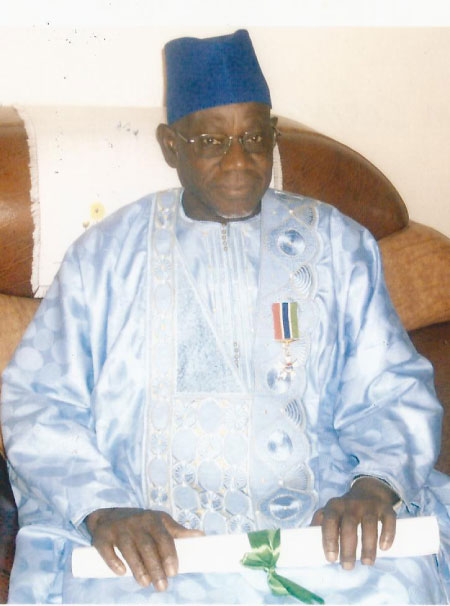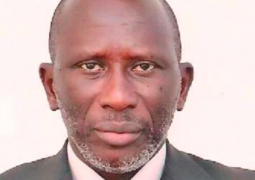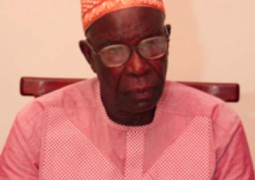
BRIEF HISTORICAL SURVEY
INTRODUCTION
Drama and theatre from the basis of the performing arts. The two are inter-related, self supporting and sustaining. Drama refers to the use of acts, stage, movement, actors and actresses and dialogue or monologue to pass on ideas and concepts to the public. Theatre is a bit more complex, it involves more such as lighting, choreography, and dance. They share a lot in common: drama and theatre can have tragedy or comedy. Both depend on stage, sets, costumes, movements etc. The power of drama and theatre is enormous. They could be used to inform, educate and elucidate the masses, especially in societies like ours which have high illiteracy rates.
ORIGINS
In
LADIES GUILD OF GRACE DRAMA GROUP
As one of the expressed inclination of colonial rule was to discourage African Culture expressions, which were termed as heathen and uncivilized. This attitude helped to destroy or dilute many aspects of indigenous culture, especially dress and languages.
Through the Ladies Guild of Grace,
The guild also raised funds for philanthropy. In 1938, it raised enough money for the refurbishment and extension of the
At a time when colonialist frowned on indigenous culture, the guild staged its play in Krio (Aku) and Wolof to revitalize local languages. However, when it staged Shakesperian plays, actors like Irene George and Rosamond Fowlis were at hand to render them in impeccable English.
It brought together
The guild proved wrong colonial pessimists who believed that Gambians were incapable of high and appreciable cultural and artistic achievements.
In the 1930s, men like Commie Owens were involved in drama activities in
For Banjul Dramatic, Omar C Jallow, Dodou K Njie, Momar Drammeh, late ARM Secka, Ebou Jobe, Badou Sowe, Tapha Joof, Abdoulie Jobe, Amadou Araba Bah, Sainey Cham, Sisters: Polo Cham, Elisabeth Mam Owens, Amie Njie, Abie Nyang etc Serign Mass Sarr, myself and others.
From 1958 – 64 many drama groups such as group Neex, Baah Yai, Judu Baah, Ballet African Society, Nyodema Kaffo, Group Dimbalanteh were formed to promote drama and theatre.
The Reform Youth Club of Banjul under the supervision of Gabriel Roberts staged plays periodically in
In 1964, these groups formed the nucleus of the National Drama Association as the umbrella association for all drama groups in the country. The National Drama Association was affiliated with the Hague based International Amateur Theatre Association. In 1966, it was the National Drama Association which was responsible for the
The Association continues to gain fame throughout the country and internationally with plays such as Dom Rew, Masaneh Ceesay etc. dramatize Radio broadcast keep them alive to date. After their dormancy, groups I O G T such as Yeateh Drama group, Fansung Jamano, Kuteh Jombulu etc. came and just continue the good work and now you have GAMAT.
National Centre for Arts and Culture and the Ministry of Tourism and Culture have always been keen to work with theatre and drama practitioners towards more activity and efficiency.
In 1977, drama and theatre were still the mainstay for the
SCHOOL DRAMA
School drama and theatre were also common during the colonial period. Shakespearian play like Shylock, the Jew, Macbeth and Kng Lear, Trial of Busumbala by Gabriel Roberts were commonly acted in schools by senior students. Many accomplished drama actors/actresses like late Momodou Musa Secka, Denis Njai, Dodou Saine, Late Saffie Coker and last but not the least Janet Badjan-Young cut their teeth in theses school activities. In the past decade, Janet has assiduously worked to revive and strengthen theatre by her new purpose built superb and imposing building located at Kanifing called Ebunjan theatre, which opened in December 2011. Gambians such as Femi Jeng (died 1981) and Charles Thomas continued to write plays and drama pieces for public and radio performances.
Mention must also be made of writers/critics like Suwaibu Conateh, then editor of The Gambia News Bulletin, poet and playwright of the drama ‘Certificate of Burial’; Jay Saidy, who used to review drama pieces in local newspapers, and Hassan Jagne, critic and writer who also watched plays and wrote helpful comments.
DIASPORA
Finally, allow me to mention Gambian actors who are well known outside the country i.e. in
Read Other Articles In Article (Archive)
Tango Programme Officer attends CIVICUS World Assembly
Sep 12, 2011, 1:33 PM
OPINION: “Congratulatory Letter” To Hon Halifa Sallah
Feb 27, 2017, 11:19 AM



